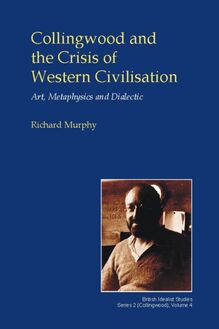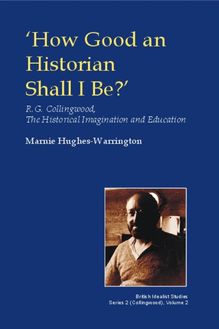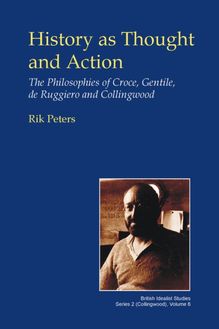-
 Univers
Univers
-
 Ebooks
Ebooks
-
 Livres audio
Livres audio
-
 Presse
Presse
-
 Podcasts
Podcasts
-
 BD
BD
-
 Documents
Documents
-
- Cours
- Révisions
- Ressources pédagogiques
- Sciences de l’éducation
- Manuels scolaires
- Langues
- Travaux de classe
- Annales de BEP
- Etudes supérieures
- Maternelle et primaire
- Fiches de lecture
- Orientation scolaire
- Méthodologie
- Corrigés de devoir
- Annales d’examens et concours
- Annales du bac
- Annales du brevet
- Rapports de stage
La lecture à portée de main
Vous pourrez modifier la taille du texte de cet ouvrage
Découvre YouScribe en t'inscrivant gratuitement
Je m'inscrisDécouvre YouScribe en t'inscrivant gratuitement
Je m'inscrisEn savoir plus
Vous pourrez modifier la taille du texte de cet ouvrage
En savoir plus

Description
Sujets
Informations
| Publié par | Andrews UK |
| Date de parution | 28 février 2012 |
| Nombre de lectures | 0 |
| EAN13 | 9781845403683 |
| Langue | English |
Informations légales : prix de location à la page 0,1124€. Cette information est donnée uniquement à titre indicatif conformément à la législation en vigueur.
Extrait
Title Page
‘How Good an Historian Shall I Be?’
R.G. Collingwood, the Historical Imagination and Education
Marnie Hughes-Warrington
Copyright Page
Copyright © Marnie Hughes-Warrington, 2003
The moral rights of the author have been asserted.
No part of any contribution may be reproduced in any form without permission, except for the quotation of brief passages in criticism and discussion.
Originally published in the UK by Imprint Academic
PO Box 200, Exeter EX5 5YX, UK
Originally published in the USA by Imprint Academic
Philosophy Documentation Center
PO Box 7147, Charlottesville, VA 22906-7147, USA
Digital version converted and published in 2012 by
Andrews UK Limited
www.andrewsuk.com
www.imprint-academic.com/idealists
Acknowledgements
Rewriting a thesis is an historical activity. Not only do you have the opportunity to assess how your views have changed; you also have the chance to appreciate the roles that others have played in shaping those views. I would like to take this opportunity to thank a number of people who helped me to complete this project.
To begin, I would like to acknowledge the role of David Boucher and Jill Roe in bringing this work to print. Their unwavering belief in the value of research on the ideas of R.G. Collingwood made the decision to revisit and rewrite my doctoral thesis easy. I would also like to thank those individuals who read and commented on this work in its first form: Nigel Blake, Richard Pring, Martin Roberts and John Wilson. I am deeply grateful for the advice they offered, though of course any errors are my own. Thanks also to Stein Helgeby, Adrian Moore and Bob Purdie, who have been excellent mentors. Kath Evesson also helped to track down some of the materials used in the second part of chapter four.
Two institutions played a large part in the composition of this work. I am grateful to those who assisted with my research at the University of Oxford and Macquarie University. More particularly, I would like to thank the Warden and Fellows of Merton College; the Department of Modern History at Macquarie; the staff of the Bodleian Library, especially Colin Harris and his colleagues at the Modern Manuscripts Room; and the staff of the Macquarie University Library, especially the documents supply staff. I would also like to acknowledge the generous financial assistance of the Rhodes Trust, the Philosophy of Education Society of Great Britain and the Macquarie University Early Career Grants Scheme. Thanks also to Michelle Arrow, who provided valuable teaching relief and to Mary Spongberg, who proves that research and families can mix.
Research is not possible without the support of family and friends. I am indebted to Susan and Grace Durber, who graciously accepted the invasion of their home in the summer of 2002. Helen Verrier, Brad Portin and the folks at St. David’s Lindfield have offered many words of support along the way, as did many of my peers at Merton and OUDES from 1992-5. In particular, I would like to pay homage to the role of Marcella, Michael and Claudia in keeping me sane (more or less). But it is to the Hughes and Warrington families that I owe my greatest debt. Thanks Mum, for the offer of the Collingwood premiership memorabilia. Thanks Andrew and Cath, for the phone calls, hilarious emails and afternoon teas. Thanks Bruce, for proofreading the entire work with scarcely a murmur of complaint. It is just not fair that a scientist can write so well. And finally, thanks to Alice, whose acceptance of a working mum is a wonderful gift. In return, I dedicate this book to her.
Permissions
The author and publisher gratefully acknowledge the permission granted to reproduce the copyright material in this book: Teresa Smith, for generously allowing me to quote from Collingwood’s unpublished manuscripts; Oxford University Press, for extracts from Collingwood’s published works, particularly An Essay on Philosophical Method , An Essay on Metaphysics , The Idea of History , The New Leviathan , The Principles of History and Other Writings and The Principles of Art ; Blackwell, for allowing me to draw upon ‘Collingwood and the Early Paul Hirst on the Forms of Experience-Knowledge and Education’ which appeared in the British Journal of Educational Studies ; Taylor and Francis, for ‘“How Good an Historian Shall I Be?”: R.G. Collingwood on Education’, which appeared in the Oxford Review of Education ; and the R.G. Collingwood Society, for ‘History, Education and the Conversation of Mankind’, which appeared in Collingwood Studies .
Every effort has been made to trace copyright holders and to obtain their permission for the use of copyright material. The author and publisher apologise for any errors or omissions in the above list and would be grateful if notified of any corrections that should be incorporated in future reprints or editions of this book.
Dedication
For Alice
Introduction: More than a Name
‘ Must a name mean something?’ Alice asked doubtfully.
‘Of course it must’, Humpty Dumpty said with a short laugh: ‘ my name means the shape I am - and a good handsome shape it is, too. With a name like yours, you might be any shape, almost.’ [1]
Robin George Collingwood’s name is familiar to history educators around the world. It has been invoked to validate educational policies and programs and notions of historical scholarship. Yet few appreciate the depth, scope and shape of his views on what it means to be educated in history. The problem is not simply that some of Collingwood’s ideas have been emphasised at the expense of others, as was the case with the neglect of his political philosophy. [2] It is more basic and fundamental than that: the Collingwood that educators know is constrained by prevailing assumptions about the territory and boundaries of education, subjects like history and philosophy, and the nature of concepts. He is simply not expected to offer anything more than advice to those who teach and formulate policies on the curriculum subject of history. The time has come to loosen those constraints and look anew at what Collingwood has to offer.
Life and Education
Even the briefest account of Collingwood’s life suggests that this was a man whose connection with education was anything but usual. Born on 22 February 1889 at Cartmel Fell in Lancashire, Collingwood was the son of William Gershom Collingwood (1854-1932) and Edith ‘Dorothy’ Mary Isaac (1857-1928), and grandson of the artist William Collingwood (1819-1903). W.G. Collingwood was John Ruskin’s secretary and biographer and a writer, art historian, archaeologist, and painter, and later the Chair of Fine Art at University College, Reading. Edith Collingwood was a musician and a noted painter of miniatures. Collingwood had three sisters, Dora, Barbara and Ursula. Dora became a watercolour artist, Barbara a sculptor and Ursula an art teacher, painter of miniatures and midwife.
Collingwood’s education, he tells us, began soon after his birth. In An Autobiography he reports that his father took him to an archaeological excavation at the Roman fort of Hardknott Castle at the age of three weeks. [3] From then until the age of thirteen, he was educated at home. Under the guidance of his parents and later his sisters, he was taught to read ancient and modern languages, sing, play the piano, write, sculpt, draw, paint, bind books and sail. He was also encouraged to develop his interest in archaeology, philosophy and the natural sciences. For example, in a letter to Dora, he wrote:
I have made some gunpowder, and have made a stand to hold a full cartridge. Like this [drawing] The candle underneath red-heats the brass cartridge-shell, and the powder goes off. Next you open the window ... [4]
His earliest extant letters date from when he was three and a half, and by the time he was eleven he had written, illustrated and bound several books including a guide to Furness Abbey (1896) and accounts of the fictional place called ‘Jipandland’. [5] Even his earliest works show a remarkable awareness of writing and publication styles. For example, the first of his books on ‘Jipandland’ includes the following title page:
Vol. Jipandland .
Pictures and stories by R. Collingwood.
Nov 1895. Lanehead.
Part I. Discoveries.
Part II Maps.
Part III A dictionary.
Part IV Alphabet and words.
[Part] V Sketches.
Part V [ sic ] Verbs.
Part VI Stories of Japes.
Printed and illustrated by R. Collingwood Dec. 14 1895. [6]
These early experiences, as Boucher points out, provided Collingwood with a model of what education could be. [7] It is a model that he turned to repeatedly in his writings, as we shall see.
In 1902, Collingwood was sent to school at Grange, and a year later he gained a scholarship to Rugby. Collingwood’s five years at Rugby were not happy: the curriculum was stultifying, sport was seen as a surrogate for intellectual engagement and the living conditions were akin to a ‘pigsty’. He later wrote of:
... the frightful boredom of being taught things (and things which ought to have been frightfully interesting) by weary, absent-minded or incompetent masters ... the torment of living by a time-table expressly devised to fill up the day with scraps and snippets of occupation in such a manner that no one could get down to a job of work and make something of it, and, in particular, devised to prevent one from doing that ‘thinking’ in which, long ago, I had recognised my own vocation. [8]
Here again we see Collingwood’s educational views hinted at, views that can be found across his writings. In 1908, Collingwood was ‘let out of prison’ and gained a scholarship to University College, Oxford, to read Literae
-
 Univers
Univers
-
 Ebooks
Ebooks
-
 Livres audio
Livres audio
-
 Presse
Presse
-
 Podcasts
Podcasts
-
 BD
BD
-
 Documents
Documents
-
Jeunesse
-
Littérature
-
Ressources professionnelles
-
Santé et bien-être
-
Savoirs
-
Education
-
Loisirs et hobbies
-
Art, musique et cinéma
-
Actualité et débat de société
-
Jeunesse
-
Littérature
-
Ressources professionnelles
-
Santé et bien-être
-
Savoirs
-
Education
-
Loisirs et hobbies
-
Art, musique et cinéma
-
Actualité et débat de société
-
Actualités
-
Lifestyle
-
Presse jeunesse
-
Presse professionnelle
-
Pratique
-
Presse sportive
-
Presse internationale
-
Culture & Médias
-
Action et Aventures
-
Science-fiction et Fantasy
-
Société
-
Jeunesse
-
Littérature
-
Ressources professionnelles
-
Santé et bien-être
-
Savoirs
-
Education
-
Loisirs et hobbies
-
Art, musique et cinéma
-
Actualité et débat de société
- Cours
- Révisions
- Ressources pédagogiques
- Sciences de l’éducation
- Manuels scolaires
- Langues
- Travaux de classe
- Annales de BEP
- Etudes supérieures
- Maternelle et primaire
- Fiches de lecture
- Orientation scolaire
- Méthodologie
- Corrigés de devoir
- Annales d’examens et concours
- Annales du bac
- Annales du brevet
- Rapports de stage









